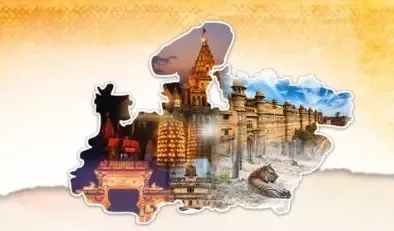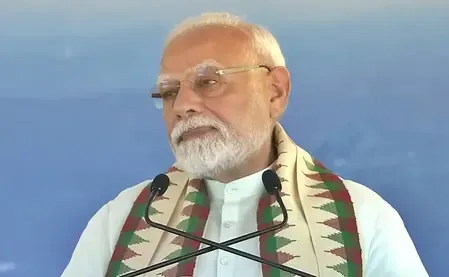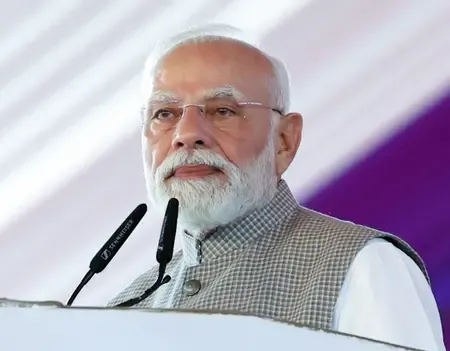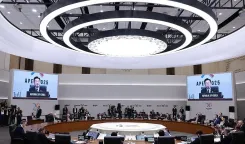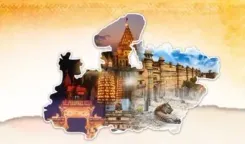Why did Rajiv Gandhi seek U.S. help for talks with Pakistan?
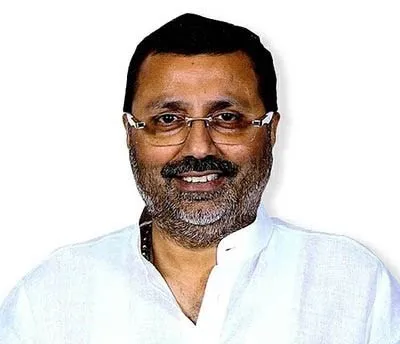
Synopsis
Key Takeaways
- Nishikant Dubey raises questions about Rajiv Gandhi's foreign policy.
- The Shimla Agreement emphasizes bilateral resolutions.
- Reagan's letter indicates U.S. interest in regional peace.
- The historical context is essential for understanding these decisions.
- Debates on national security strategies continue to be relevant today.
New Delhi, May 28 (NationPress) BJP Member of Parliament Nishikant Dubey has once again criticized the Congress party and the late Prime Minister Rajiv Gandhi regarding attempts to seek the involvement of the United States in mediating discussions with Pakistan, arguing that it contradicts the essence of the Shimla Agreement.
Dubey presented a letter from former U.S. President Ronald Reagan directed to Rajiv Gandhi, which indicates that the then Indian Prime Minister had requested American assistance in negotiations with Pakistan.
“Being a Gandhi is not easy,” Dubey remarked while sharing the letter on social media. “This correspondence from U.S. President Ronald Reagan to Indian Prime Minister Rajiv Gandhi raises a critical question. According to the 1972 Shimla Agreement, all conflicts between India and Pakistan were intended to be resolved bilaterally, without any external intervention. Why, then, did Rajiv Gandhi seek American support for dialogue with Pakistan?”
Pointing out key excerpts from the letter, Dubey highlighted Reagan’s comments reflecting U.S. interest in fostering regional stability, as well as its readiness to assist both India and Pakistan in mitigating future conflicts.
A portion of Reagan’s letter states: “Mr. Prime Minister, we strongly support all efforts which help ensure peace and security in South Asia… To help prevent similar unfortunate misunderstandings in the future, we have provided some background on procedures in effect between Eastern and Western Europe. We are offering both your government and that of Pakistan additional information that may help alleviate future tensions.”
The letter also acknowledges Rajiv Gandhi’s suggestion to include American drug liaison agents in Indo-Pakistani discussions on narcotics.
“I was particularly interested in the proposal in your letter of January 7 that American drug liaison agents be associated with your bilateral narcotics consultations… I assure you we will be happy to assist in whatever ways you and the Government of Pakistan find helpful,” Reagan wrote.
Dubey’s comments come amid the BJP’s ongoing narrative questioning the historical foreign policy choices of the Congress party, especially regarding matters of national security and diplomacy.
Previously, Dubey had shared a declassified 1963 telegram from the U.S. State Department, alleging that former Prime Ministers Indira Gandhi and Jawaharlal Nehru were responsible for decisions leading to territorial concessions to Pakistan.
“Iron Lady Indira Gandhi. Despite opposition from the then Defense Minister Babu Jagjivan Ram and Army Chief Sam Manekshaw, India itself halted the 1971 war under American pressure. Babu Jagjivan Ram wanted the war to continue until the part of Kashmir forcibly occupied by Pakistan was reclaimed, but the fear of the Iron Lady and the terror of China prevented this. Was it more beneficial for India to reclaim its land and the Kartarpur Gurdwara or to create Bangladesh?” he stated.

